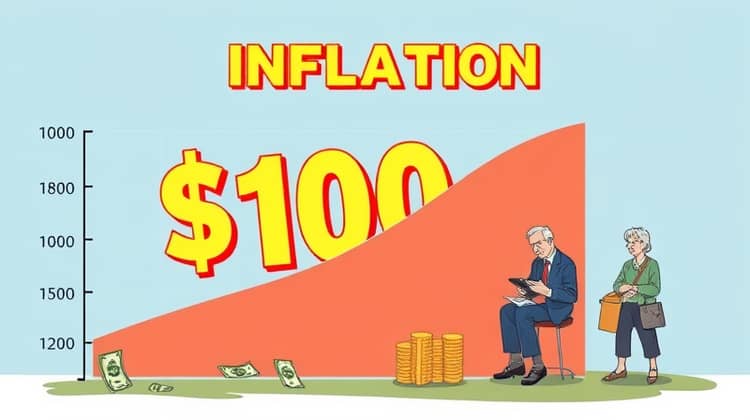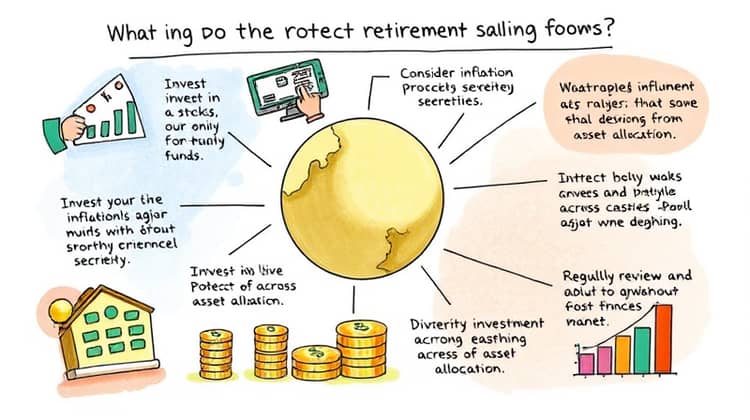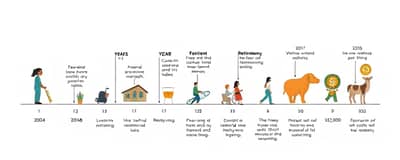Inflation is often mentioned in financial discussions, but its actual impacts are frequently misunderstood. As we journey toward retirement, our focus should not only be on accumulating savings but also on ensuring those savings can maintain their purchasing power over time. This is where understanding inflation becomes crucial.
For retirees, the cost of living can fluctuate significantly due to inflation, which can erode the value of fixed retirement incomes. Thus, grasping the dynamics of inflation can empower individuals to make informed decisions about their savings strategies and spending habits during retirement.
In this article, we will explore what inflation is, how it impacts retirement savings, and what strategies can be employed to safeguard those savings against inflation's erosive effects. We aim to equip retirees with practical steps to enhance their financial security and keep pace with rising costs.
What is Inflation?

Inflation refers to the rate at which the general level of prices for goods and services rises, leading to a decrease in purchasing power. Essentially, as inflation rises, the value of money falls; this means that each dollar buys fewer goods and services than it did in the past.
Economists typically measure inflation by the Consumer Price Index (CPI), which tracks the price changes of a basket of goods and services over time. When the CPI increases, it indicates that inflation is occurring, and individuals may need to spend more to maintain their standard of living.
Notably, inflation can occur due to various factors including increased production costs, higher demand for products, or even government monetary policies. Each of these can contribute to general price increases and affect the economy at large.
Understanding inflation is critical for retirees since it affects not only their day-to-day expenses but also the overall longevity of their retirement savings. As costs rise, retirees who fail to account for inflation may find themselves with insufficient funds to cover their needs.
How Inflation Affects Retirement Savings

Inflation can significantly diminish the purchasing power of retirement savings. For example, if you save $1,000 today and inflation averages 3% per year, in just ten years, that $1,000 will only have the purchasing power of approximately $740. This makes planning for a long-term retirement more complicated and critical.
Moreover, many retirees rely on fixed income sources, such as pensions or annuities, which may not adjust for inflation. As a result, even modest inflation rates can lead to a large shortfall in future purchasing power, forcing retirees to reduce their expenses or deplete their savings more rapidly.
- Inflation reduces the purchasing power of savings, affecting overall financial stability. - Many fixed-income sources do not adjust for inflation, leading to potential shortfalls in required expenses. - Retirees face the risk of having insufficient funds to cover essential living costs as prices rise. - Understanding the relationship between inflation and retirement savings is essential for financial planning.
- Inflation reduces the purchasing power of savings, affecting overall financial stability.
- Many fixed-income sources do not adjust for inflation, leading to potential shortfalls in required expenses.
- Retirees face the risk of having insufficient funds to cover essential living costs as prices rise.
- Understanding the relationship between inflation and retirement savings is essential for financial planning.
To mitigate the impact of inflation, retirees need to be proactive in their financial planning. This involves not only understanding how inflation can affect their current and future financial landscape but also implementing strategies that can enhance their financial resilience.
Strategies to Protect Retirement Savings from Inflation

There are several strategies retirees can use to protect their savings from the adverse effects of inflation. Implementing a mix of these strategies can help ensure that retirement funds maintain their value over time.
- Invest in stocks or equity funds, as they tend to outpace inflation over the long term.
- Consider inflation-protected securities such as TIPS (Treasury Inflation-Protected Securities), which adjust their principal value based on inflation rates.
- Diversify investments across various asset classes to minimize risks associated with inflation.
- Review and adjust your asset allocation regularly to respond to economic changes and inflation forecasts.
By employing these strategies, retirees can better protect their financial health and peace of mind in the face of rising prices. Making informed investment decisions is crucial for maintaining the longevity of retirement savings.
Conclusion

Inflation represents a significant threat to the stability of retirement savings, and understanding its implications is crucial for effective financial planning. Without careful consideration of inflation, retirees risk experiencing diminishing returns on their savings, ultimately jeopardizing their quality of life.
It's vital for individuals to take proactive steps to safeguard their retirement savings against inflation's erosive effects. By actively managing investments and being strategic about asset allocation, retirees can make their money work harder for them, ensuring it retains its value over time.
In conclusion, as the cost of living continues to rise, planning for inflation is a critical component of retirement readiness. With the right strategies in place, retirees can enjoy peace of mind knowing their savings will support them through their golden years.














